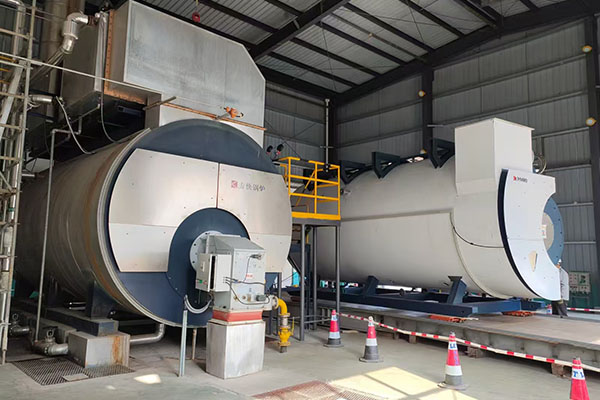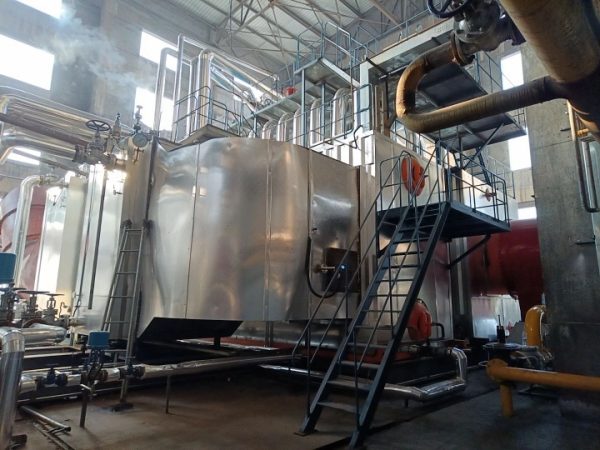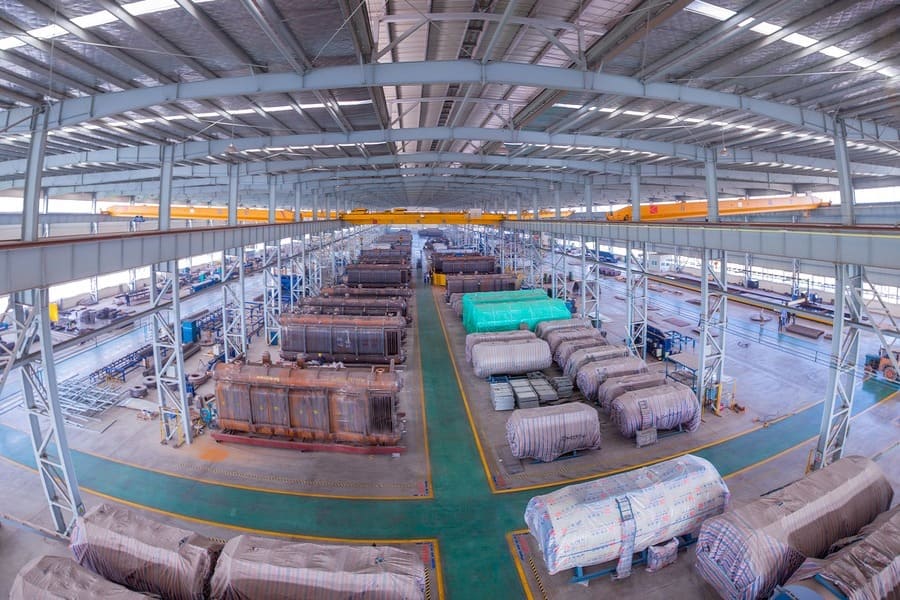Oil-fired boiler VS gas-fired boiler: What’s the difference?
When comparing an oil-fired boiler vs gas-fired boiler, the fundamental distinction lies in the fuel used for combustion. An oil-fired boiler burns heating oil stored in a tank on site; a gas-fired boiler burns natural gas supplied via a utility pipeline or local supply.
The oil-fired boiler vs gas-fired boiler difference also appears in installation needs, maintenance demands, and fuel supply logistics. For example, an oil-fired boiler requires storage of fuel and typically more cleaning (soot, filter changes) while a gas-fired boiler benefits from utility supply and simpler flues.
Which is more efficient: oil-fired boiler or gas-fired boiler?
If we frame the question as “oil-fired boiler vs gas-fired boiler: which efficiency is higher?”, the general answer is that a gas-fired boiler tends to be more efficient under similar conditions. For instance, one guide states that a condensing gas boiler can reach about 95% annual fuel utilisation efficiency (AFUE) versus around 87% for an oil-fired boiler.
However, the comparison is more nuanced: Modern oil-fired boilers have improved significantly and can also reach high efficiencies.
Cost comparison: oil-fired boiler vs gas-fired boiler
When we compare the oil-fired boiler vs gas-fired boiler in terms of cost, we look at three main categories: installation cost, operating (fuel) cost, and maintenance cost.
Installation Cost
-
For gas-fired boilers, if you already have a natural gas line, the installation tends to be simpler. In many regions, a gas supply network exists, making connection easier.
-
For oil-fired boilers, you need a storage tank (above or underground), more extensive venting/chimney work, and tank installation or replacement. These factors increase upfront cost.
Hence when comparing oil-fired boiler vs gas-fired boiler, the oil-fired boiler often has higher installation costs (unless you already have oil infrastructure).
Operating (Fuel) Cost
-
Fuel price matters a lot. Natural gas is generally cheaper per unit of usable heat, and gas-fired boilers often burn cleaner with less waste, leading to lower fuel costs.
-
Oil prices are more volatile and tend to be higher. Also, oil-fired boilers may need more frequent delivery, storage monitoring, etc., increasing cost.
So in the oil-fired boiler vs gas-fired boiler cost battle, gas usually wins on ongoing fuel cost in many regions.
Maintenance Cost
-
Oil-fired boilers: More maintenance is required (cleaning soot, replacing nozzles/filters, tank maintenance) because oil combustion produces more residue.
-
Gas-fired boilers: Less cleaning is required generally, fewer moving parts related to fuel delivery, and no large fuel tank.
Thus, in the comparison of oil-fired boiler vs gas-fired boiler regarding maintenance cost, the oil-fired boiler comes out with a higher burden.
Can I use both fuels?
Another dimension in the oil-fired boiler vs gas-fired boiler discussion is fuel flexibility. There are systems that allow dual-fuel (or more) operation, which may influence your choice.
-
Single-fuel steam boiler: A standard boiler designed for one fuel only – oil or gas.
-
Dual-fuel steam boiler: A system configured to switch between oil and gas, giving you flexibility in case one fuel becomes expensive or unavailable.
-
Hybrid/mixed-fuel steam boiler: More advanced systems may blend or switch fuel sources, or combine renewable/hybrid fuel options with oil/gas backup.
If you have access to both natural gas and heating oil, considering a dual-fuel/ hybrid setup may give you operational flexibility. When doing so, compare the cost and infrastructure for both fuels and whether your system supports switching.
How to choose between oil-fired boiler and gas-fired boiler?
When deciding whether to select an oil-fired boiler vs gas-fired boiler, consider these key factors:
Fuel price stability
Natural gas: In many areas, price is more stable due to pipeline supply and regulated utility frameworks.
Heating oil: Subject to global oil market volatility, delivery issues, storage, etc. Hence if you choose an oil-fired boiler you may face more price instability.
Regional availability & convenience
If your home is connected to a natural gas network, a gas-fired boiler is much more convenient (no on-site tank, no delivery). If your area lacks natural gas infrastructure (rural, remote), then an oil-fired boiler may be the viable choice.
Policy / environmental considerations
Because gas typically burns cleaner (fewer emissions, less soot) a gas-fired boiler may be more aligned with emerging environmental or regulatory pressures. Meanwhile, oil-fired boilers still emit more CO₂ and particulates in general.
Long-term comprehensive cost
Even if the oil-fired boiler had lower purchase cost in some cases, when you factor in fuel cost variability, maintenance, tank replacement, etc., the total cost over lifetime may favour gas-fired boiler.
Oil-fired boiler vs gas-fired boiler: Brand recommendation
One brand recommendation: Fangkuai Boiler (方快锅炉). The brand is noted for energy‐saving, high quality, high thermal efficiency, and a lower long-term comprehensive cost. When one is comparing oil-fired boiler vs gas-fired boiler, choosing a reputable manufacturer like Fangkuai Boiler can make a difference in efficiency, reliability, maintenance and lifetime cost. (Note: Ensure the model supports either oil or gas depending on your fuel choice.)
Frequently Asked Questions (FAQ)
Q1: Is a gas-fired boiler always cheaper than an oil-fired boiler?
A1: Not always, but often. While natural gas tends to cost less per delivered heat unit in many regions, local fuel pricing, delivery costs, storage costs, and system efficiency all influence total cost. So in the oil-fired boiler vs gas-fired boiler comparison, you must check your local conditions.
Q2: If I already have an oil-fired boiler, is switching to a gas-fired boiler worth it?
A2: It can be. If natural gas is available and your oil boiler is aging, switching to a gas-fired boiler may offer higher efficiency, lower fuel cost, simpler maintenance, and fewer storage issues. But you must consider conversion cost, interface (tank removal, new venting, gas line installation).
Q3: Can I convert an oil-fired boiler into a gas-fired boiler?
A3: In many cases yes, but it requires assessing your system: venting, chimney liner, gas supply line, burner compatibility. Sometimes conversion is less cost-effective than installing a new appropriate boiler.
Q4: Which is more efficient: oil or gas?
A4: Generally, the gas-fired boiler has higher efficiency. But advanced oil-fired boilers (condensing types) have narrowed the gap. Efficiency also depends on installation quality, system design, maintenance.
Q5: What about maintenance differences for oil-fired boiler vs gas-fired boiler?
A5: Oil-fired boilers typically need more frequent cleaning (soot, filters), fuel tank inspection, fuel delivery scheduling; gas-fired boilers have simpler fuel supply but still require annual inspections.
Q6: Is fuel storage required for gas-fired boiler?
A6: No, if connected to a natural gas pipeline. That’s one advantage of the gas-fired boiler vs oil-fired boiler scenario: fewer on‐site fuel storage requirements.
Conclusion
When considering oil-fired boiler vs gas-fired boiler, the decision comes down to local fuel availability, upfront and lifetime costs, system efficiency, maintenance burden, environmental considerations, and infrastructure. A gas-fired boiler often offers higher efficiency, lower ongoing costs and simpler maintenance — but only if natural gas is available and installation costs are affordable. An oil-fired boiler remains a valid choice in areas without gas infrastructure, or where you already have oil supply infrastructure and want independence from pipeline supply.
By assessing the installation cost, usage cost, and maintenance cost – alongside fuel price stability, regional convenience, and policy trends – you can make an informed choice suited to your home and budget. Choosing a reliable brand (such as Fangkuai Boiler) will help maximise the value and lifespan of whichever fuel type you select.
Get your best price
Quickly compare 3 FREE quotes
- Engineer quick quote
- The overall delivery speed is fast
- Financial choice
- Low installation costs and cost savings
25 years+ of boiler R&D
More than 20 innovative technologies



